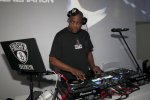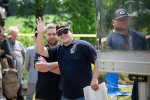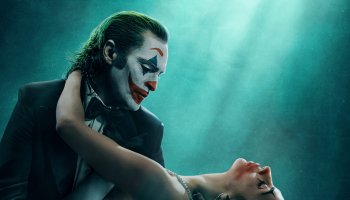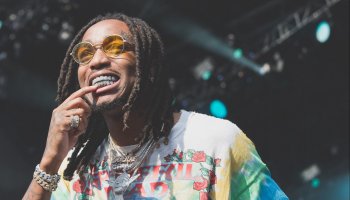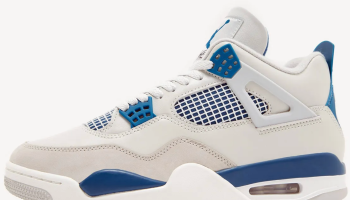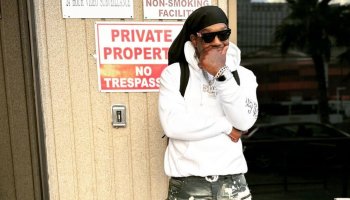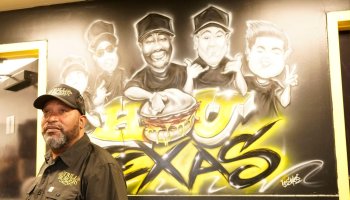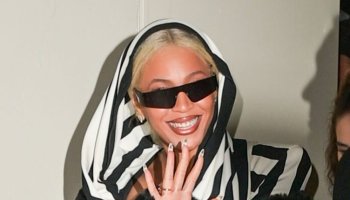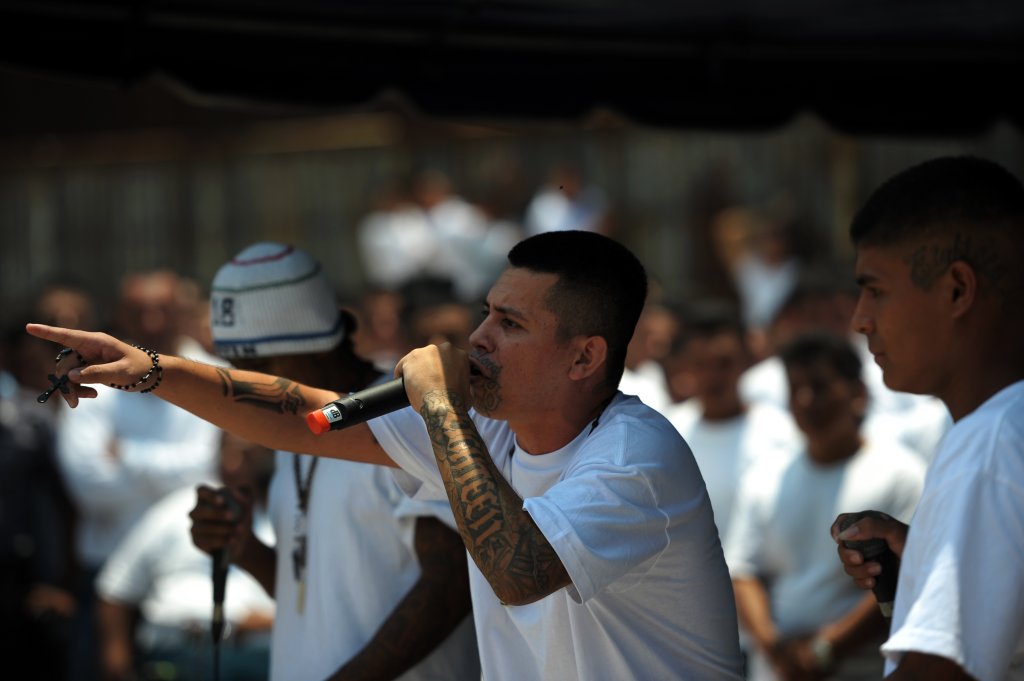
Source: AFP / Getty
Aside from being home to the arguably the most violent gang in the world, MS-13, not much else is known about that little country in central America called El Salvador. While Donald “King Devil” Trump continuously paints the country as a “sh*t hole” haven for criminals and killers, on the low El Salvador is like some parts of rural America in the sense that it’s a very religious and conservative country.
And like rural America apparently living the Hip-Hop culture could get you killed by police out there.
In an article published by Buzzfeed, Salvadorian rap group Pescozada spoke about how critical authorities are about Hip-Hop music and why they assume Hip-Hoppers are MS-13 gangsters.
“Freedom of speech in Salvador is — well, it’s a new concept for our police,” said Debil Estar, 36, who lives in San Salvador and was touring the US this summer.
One of his first run-ins with the Salvadoran police came a decade ago, when cops began profiling potential gang members based on their clothes — including the baggy shorts, sneakers, and American sports jerseys that are ubiquitous in hip-hop circles.
Pescozada had begun making a name for themselves with politically minded lyrics and danceable beats, and the government had taken notice, he said.
It’s worth noting that Pescozada rapper Debil Estar happens to have a degree in law and tries to live his life accordingly whether he’s on the mic or in the office. Even with that being the case police continue to hassle the rap group and their followers any chance they get.
Following a show one night in El Salvador, the band was pulled over. “The police put their guns in our car windows” and forced the members out of the car, Debil Estar recalled. They began searching the car for drugs or guns but found nothing, he said. As a lawyer, “I try to do things legal,” he said, smiling.
Although nothing happened that night, the police have continued to harass the band and their fans, insisting that because of rap’s popularity with violent gangs like MS-13, anyone associated with it is potentially a dangerous criminal. More than once, he said, police have come to his shows.
Though Pescozada lean towards more conscious Hip-Hop than gangster rap, MS-13 gang members have in fact been producing their own records since the late 2000’s in which they encourage violence while boasting about their own criminal actions. Because of this police now automatically assume that anyone rapping or even wearing baggy clothes is in fact a gang member.
Queens born Salvadorian producer/DJ Raul “Loup Rouge” Hidalgo says that simply looking the part can get you pulled to the side.
“It’s so, so easy to get stopped,” said Hidalgo. “You can be walking in a mall and they’ll just stop you and demand you take off your shirt.”
“If it’s baggy, you’re automatically seen as a gang member … and the gangs have evolved. A lot of gang members don’t even have tattoos. They look like normal people,” Hidalgo said.
Sticking out can be potentially deadly for members of the hip-hop community. At least four high-profile members of the community have either disappeared or died in police custody since March 2016, when Emilio “Milo” Bolaños went missing. A popular breakdancer, Bolaños was well-known not just in El Salvador but in international B-boy circles. His disappearance, which remains unsolved, according to Hidalgo, was the “first in the scene that made people start taking notice of this stuff.”
Now we know that not only do people in El Salvador have to worry about the rampant gang violence that’s plagued the country for years, but police who take the law into their own hands depending on your appearance. Is it any wonder why people migrate to the US looking for a better life? Don’t tell that to Donald Trump though. He’d look for a way to hire said police through some work visas or something.
